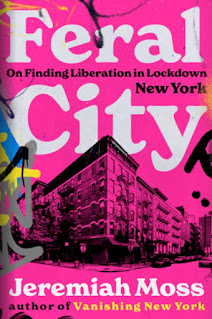
As the press release states, "In celebration of the centennial of Sigmund Freud’s visit to Coney Island in 1909, artist Zoe Beloff has resurrected the forgotten world of the Coney Island Amateur Psychoanalytic Society."
Piecing together bits of history found at flea markets and around Coney, Beloff informs us that the Society, housed in an office atop the Shore Theatre, was founded in 1926 and folded sometime in the early 1970s. It was made up of men and women, most of them working class Jews and Italians, excited by Freud's new ideas about sexuality and the unconscious mind.

With an obsessive eye for detail and accuracy, Beloff brings the vanished Amateur Psychoanalytic Society to life through artifacts and ephemera.
There are photographs and bios of its members (like Stella Weiss, who "had all the makings of a Borscht Belt comedienne," and Eddie Kammerer, for whom "Coney Island was haunted by his mother, forever young and beautiful and out of reach").
There are Dream Films, created by the members, playing on screens. And, everywhere, elaborate plans for a Freudian vision of Coney--a psychoanalytic Dreamland where bumper cars express unconscious drives, and wavy mirrors reveal your deeply buried, Id, Ego, and Super-Ego.

The Freudian dream park was the brainchild, Beloff tells us, of Albert Grass, founder of the Coney Island Amateur Psychoanalytic Society. Sadly, Grass' vision for a new park was squelched by George Tilyou, owner of Steeplechase.

Tilyou's rejection letter appears on the wall, typed on ancient letterhead. Grass' notes and sketches (many of them sexually explicit) are stained with coffee rings. Painted plywood boards for a bumper car game, discovered in an abandoned lot, are on display. And the beginnings of a wax sculpture of Freud, found in the World in Wax Musee, are preserved behind chicken wire.

The New York Times published an extensive article, with audio slide show and film, on the exhibit. Explaining her work, Beloff said, “I travel back into the past and explore the world of the imagination, the paranormal... I feel like I’m like a medium, and the voices of the past speak through me. I don’t make it up, I try to conjure it up.”
It is an impressive conjuring. Too good to be true. I asked the woman taking tickets, "Is it real?" She gave me a vague, existential answer, "What is reality? Especially in Coney Island."

The Times asked Beloff the same question, "Did the Coney Island Amateur Psychoanalytic Society really exist?"
“That’s a good question,” she said with a smile. “What do you think? Let’s think about interpreting this. That’s what Freud was about, taking real things and recontextualizing them to see what that says about us. Maybe that’s the approach I took.”
As Coney is set to undergo a violent, criminal Disneyfied surgery, I find myself wishing that Albert Grass, Stella Weiss, Eddie Kammerer, and the rest of the amateur psychoanalysts would appear to make Beloff's brilliant vision a reality. New York needs a Libido Funhouse far more than we need yet another (and another) luxury hotel tower.
*Tune in next for an interview with Zoe Beloff*



5 comments:
The sexual desires of the past are no different than what they are today...our erotic animal nature, that's all it is...
Obviously she made it up. 1972 (when the group purportedly folded) is recent enough that there would be members and the children of members around still.
It's a clever idea, but I hate it when artists get coy about the truth.
i like the play between fact and fiction, the slippages and mysteries.
The greatest blur-the-boundaries museum is the Museum of Jurassic technology in LA:
http://www.mjt.org/
i love that spooky place
Post a Comment